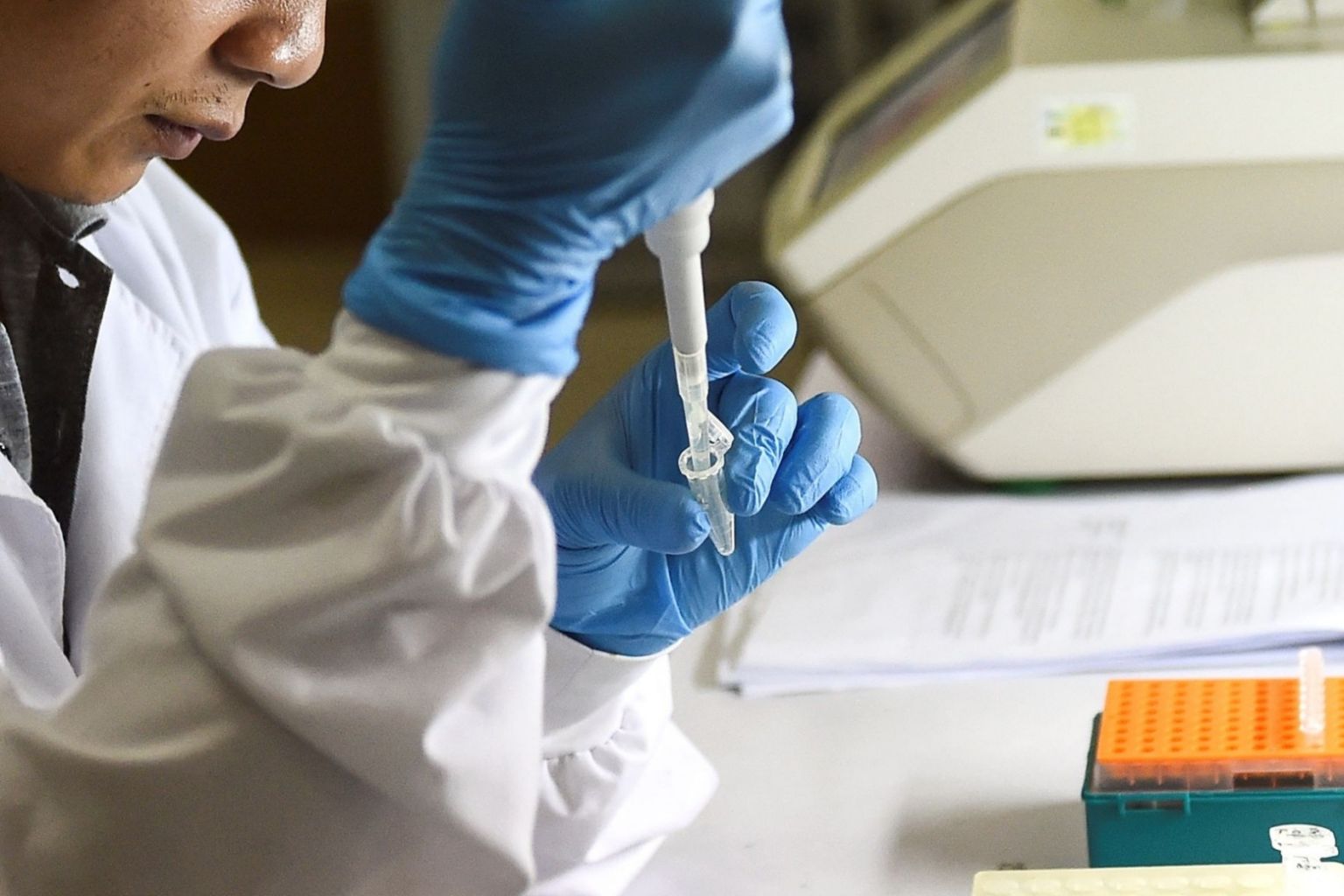Industrywide effort to boost leadership and digital skills for PMETs in biomedical sciences
Sign up now: Get ST's newsletters delivered to your inbox

Singapore's biomedical sciences industry employs more than 22,000 people and includes eight of the top 10 pharmaceutical and biologics companies in the world.
PHOTO: AFP
SINGAPORE - Professionals, managers, executives and technicians (PMETs) in the biomedical sciences industry can look forward to new opportunities to grow their digital and leadership skills through an initiative launched on Tuesday (Sept 17).
The Biomedical Sciences Training Community has been set up by the National Trades Union Congress' Employment and Employability Institute (e2i) and Chemical Industries Employees' Union (CIEU) with the aim of building a community of learners. It is the first such effort for an industry.
One key programme under the initiative is Project Zodiac, a leadership training workshop to help middle and senior managers develop self-awareness and adaptive skills like effective communication, problem solving and resilience.
It comprises a two-day retreat and three half-day workshops, as well as a 60-day period for them to implement what they learnt through a project at work.
About 100 mid-management employees from 14 companies have taken part in the programme since it started in March this year, and another 100 will likely attend by the end of this year (2019).
The Biopharmaceutical Manufacturers' Advisory Council (BMAC) - comprising a group of government agencies and 16 companies - started the programme as a pilot two years ago with leadership training company Forest Wolf, and now wants to expand it to the rest of the industry.
BMAC co-chair Lim Hock Heng, who is vice-president and site director at GSK's Pharmaceuticals Supply Chain Singapore, said that many foreign biomedical companies here are still young and are currently led by people from their home countries.
But over time, as these companies develop more confidence in the teams here, more locals may be appointed to lead the firms.
"There are many bright and young locals with deep technical skills, but as we prepare them for leadership roles, they need to know how to make good decisions, navigate complex environments, take risks and motivate people," he said.
"This requires a conscious investment in soft skills," he added.
Singapore's biomedical sciences industry - which consists of pharmaceuticals and medical technology - employs more than 22,000 people and includes eight of the top 10 pharmaceutical and biologics companies in the world, said NTUC secretary-general Ng Chee Meng at an industry event on Tuesday.
Technology adoption by companies is high and more advanced than in most other industries, so workers need to adapt to Industry 4.0 technologies, he added.
"Having the strategy to match Worker 4.0 with Industry 4.0 is key to meeting the demand for skilled manpower in both technical and management positions," Mr Ng said.
Mr Ng was speaking to around 160 people at the inaugural Biomedical Sciences Symposium, held at the Devan Nair Institute for Employment and Employability in Jurong East, about training workers for the industry.
Besides improving their leadership skills, biomedical sciences workers can also attend bite-sized courses on Industry 4.0 in line with NTUC's advanced manufacturing framework. These courses will be run by the Nanyang Technological University and Republic Polytechnic. Workers can also learn about digitalisation and industry topics, such as microbiology laboratory safety and stem cell technologies, through NTUC's mobile learning app U Leap.
So far, close to 1,500 PMETs have already gone through programmes under the three areas of leadership, Industry 4.0 and digitalisation, and e2i and CIEU aim to train another 1,500 by next year. The unions and e2i will encourage companies to send their workers for the courses, said e2i.
Mr Ng said he hopes that the new training community can also be a catalyst for employers to consider forming training committees with the unions to identify skills workers need for company transformation, and implement training for them.
"When the industry wins, and you aggregate this across other industries, the economy wins. When the Singapore economy wins, when we have good governance in Singapore, the ordinary workers, ordinary Singaporeans win," he said.
GSK senior chemical engineer Charles Wong, 36, attended the Project Zodiac course in March and April this year and was one of the top graduates.
He said he used what he learnt on a yield improvement project he was leading which required a revamp of his plant.
Mr Wong led his team of about 20 people to reduce the scope and cost of the project by 95 per cent while still achieving the same yield outcome.
Mr Wong led his team of about 20 people to reduce the scope and cost of the project by 95 per cent while still achieving the same yield outcome.
He also convinced senior managers to endorse the new plan by tailoring his presentation to their different communication styles, which he learnt about in the course. The team was able to complete the project while he was on paternity leave in June.
"I felt very proud as a person and also for my team," said Mr Wong.


